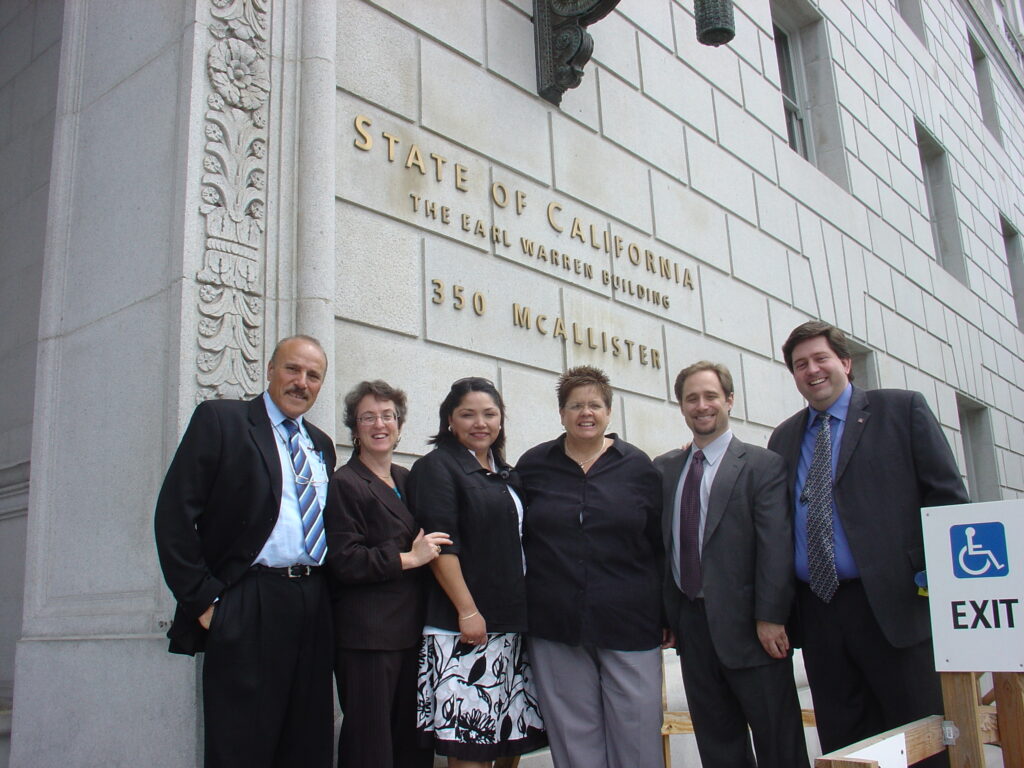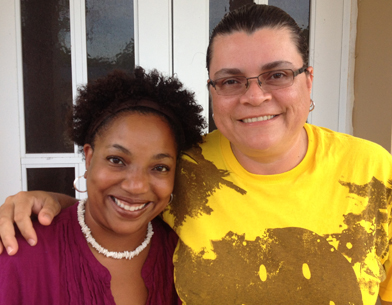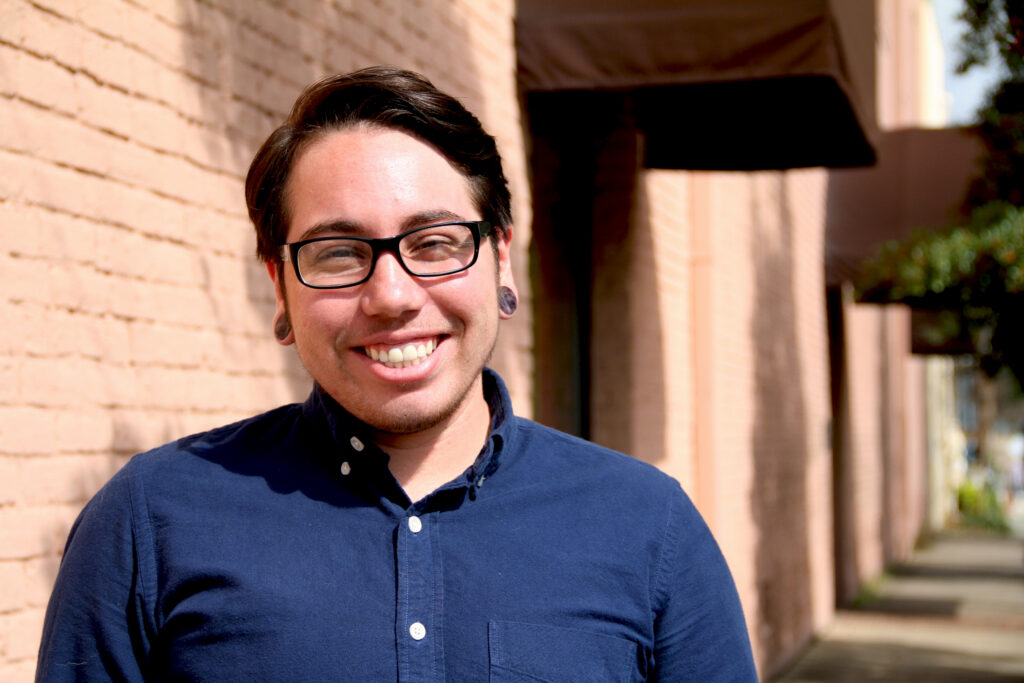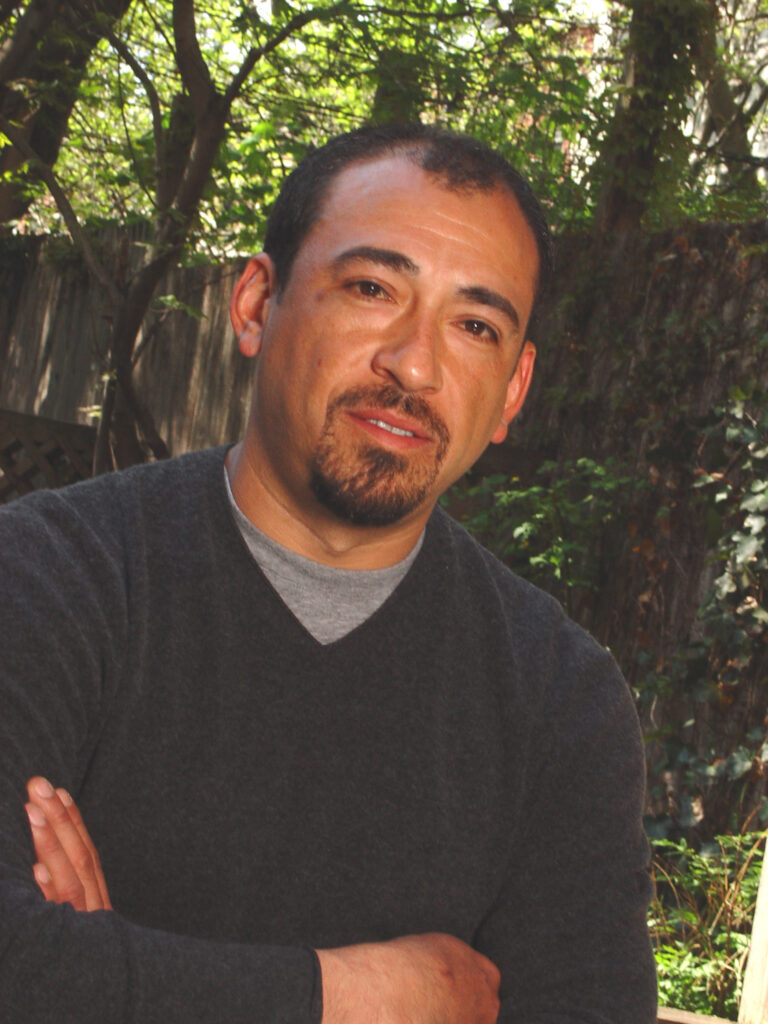To celebrate Latinx Heritage Month overlapping with LGBTQ+ History Month, we flipped through the pages of Lambda Legal’s book, “Making the Case for Equality: 50 Years of Legal Milestones in LGBTQ+ History”, to spotlight a few LGBTQ+ Latinx trailblazers. These amazing human beings were not only Lambda Legal plaintiffs — their lives and courage also made history.
It’s important to highlight these vital stories year round. However, this month brings a timely opportunity to uplift Latinx communities, particularly when they are being attacked at every turn, at every level of government — from immigrant rights, healthcare, safety, housing to LGBTQ+ rights. And by doing so, we call attention to the intersectional nature of our lived experiences and struggles, including legal fights.
Lambda Legal stands in solidarity with these communities, our people, and calls on all of you to join us in honoring these brave trailblazers who paved the way for many of the victories we have today. Their lives continue to inspire us.
To learn more about our landmark cases and the fearless plaintiffs who made them possible, purchase “Making the Case for Equality”, authored by Lambda Legal’s Senior Director of Strategic Initiatives (and former Chief Legal Officer), Jennifer C. Pizer, and political scientist Ellen Ann Andersen.
Yolanda Arroyo Pizarro and Zulma Oliveras Vega
As we fought for full marriage equality across the United States, Yolanda Arroyo Pizarro and Zulma Oliveras Vega joined Lambda Legal in a federal lawsuit challenging Puerto Rico’s ban on marriage for same-sex couples. The couple first met in 2008, building a life together and raising Yolanda’s daughter from a previous relationship. When Yolanda was hospitalized with bronchitis in 2014, the couple wondered what would happen in a medical emergency without the security of a legally recognized marriage. Joining four other couples in our lawsuit, Yolanda and Zulma made history when the marriage ban was overturned in 2015, allowing LGBTQ+ couples to marry, and federal district and appellate courts made clear that the Supreme Court’s Obergefell decision applied to US territories like Puerto Rico.
Guadalupe “Lupita” Benitez
Guadalupe (“Lupita”) Benitez and her partner, Joanne Clark, were our plaintiffs in Benitez v. North Coast Women’s Care Medical Group (2002-2009). Lupita and Joanne had been together for nearly a decade when they were ready to start their family. But then, Lupita learned she had a common infertility condition. Starting in 1999, she spent a year receiving some treatments from North Coast Women’s Care Medical Group but, unfortunately, was denied the appropriate next-step treatment for her condition due to her physicians’ religious refusal to treat her like their other patients because of her sexual orientation. Lambda Legal argued that religious rights did not give Lupita’s doctors the right to ignore California’s civil rights law. In a unanimous decision, the California Supreme Court agreed that religion cannot be used as a legal excuse for doctors to discriminate against a patient because she is a lesbian woman, enforcing Lupita’s right to be treated equally with other patients facing the same health care needs. The court’s decision made clear that California’s state law prohibiting discrimination must be followed.
Joaquin Carcaño
In 2016, North Carolina passed a law (HB 2) requiring people to use public bathrooms aligned with their sex designated at birth. Lambda Legal and the ACLU immediately challenged it in federal court. Our litigation gave human faces and names to the harms caused by the law. It also helped to drive a national campaign to oppose HB 2, a campaign that included corporate leaders, entertainers, and sports stars, and that made the state legislature backpedal in 2017. A new law (HB 142) repealed the bathroom provisions while also barring schools and government agencies from regulating access to bathrooms. This meant a ban on both inclusive and exclusionary bathroom policies, leaving transgender and nonbinary people in limbo. We amended our lawsuit to include the revised law and in 2019, over the objections of the state legislature, we secured a consent decree that prohibited North Carolina from using HB 142 to police the bathroom choices of its citizens. Other states learned at least a temporary lesson from North Carolina’s experience. It took until 2021 before another state (Tennessee) enacted a bathroom ban.
Alec Esquivel
Alec Esquival was our plaintiff in Lambda Legal’s lawsuit fighting against exclusionary and substandard insurance coverage for gender-related health conditions. In Esquivel v. Oregon, we represented Alec Esquivel, who sought insurance coverage for a hysterectomy as part of his gender transition. His doctor had determined it was medically necessary in part because of Alec’s heightened risk for uterine and ovarian cancer. As a clerk for the Oregon Court of Appeals, Alec was covered by the state’s health plan, which routinely covered hysterectomies. But in 2010, he was denied coverage based on the insurance plan’s exclusion of transition-related care. We stepped in to administratively appeal the denial. When the appeal was rejected in 2011, we sued the State of Oregon, arguing that its own anti-discrimination law prohibited it from denying insurance coverage based on gender identity. Confronted with our lawsuit, Oregon agreed in 2013 to change its coverage to include all medically necessary care relating to gender transition.
Jorge Soto Vega
In his hometown of Tuxpan, Mexico, Jorge Soto Vega’s family and neighbors routinely harassed him because he was gay. Then the police abducted, beat, and sexually assaulted him, using anti-gay slurs and threatening to kill him if they saw him again. Jorge knew he had to get away. He fled to the United States and requested asylum, but his claim was denied. The immigration judge agreed that Jorge had been persecuted because of his sexuality, but also decided that Jorge didn’t “look gay.” To the judge, that meant Jorge could have hidden his gay identity and avoided the abuse, and that he could do so upon being returned to Mexico. After an immigration appeals court affirmed this decision, Lambda Legal spotted the legal error: our laws do not require people to avoid persecution by hiding. We took on Jorge’s case to make that argument to the federal appeals court. We also pointed out that the Mexican police had identified Jorge as gay despite the U.S. immigration judge’s perceptions and assumptions.
The Ninth Circuit was persuaded and overruled the immigration courts. The judge applied the rule that no one should have to hide their sexual orientation to be safe and concluded that nowhere in Mexico was safe for Jorge. He was granted asylum in 2007. The Ninth Circuit decision reinforced the foundation for asylum claims based on anti-gay persecution and made clear that our immigration laws do not require LGBTQ+ people to live in the closet to stay alive.





